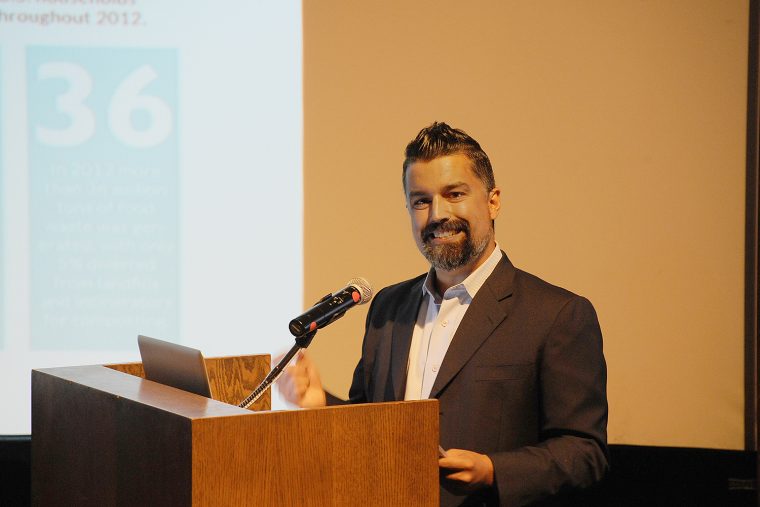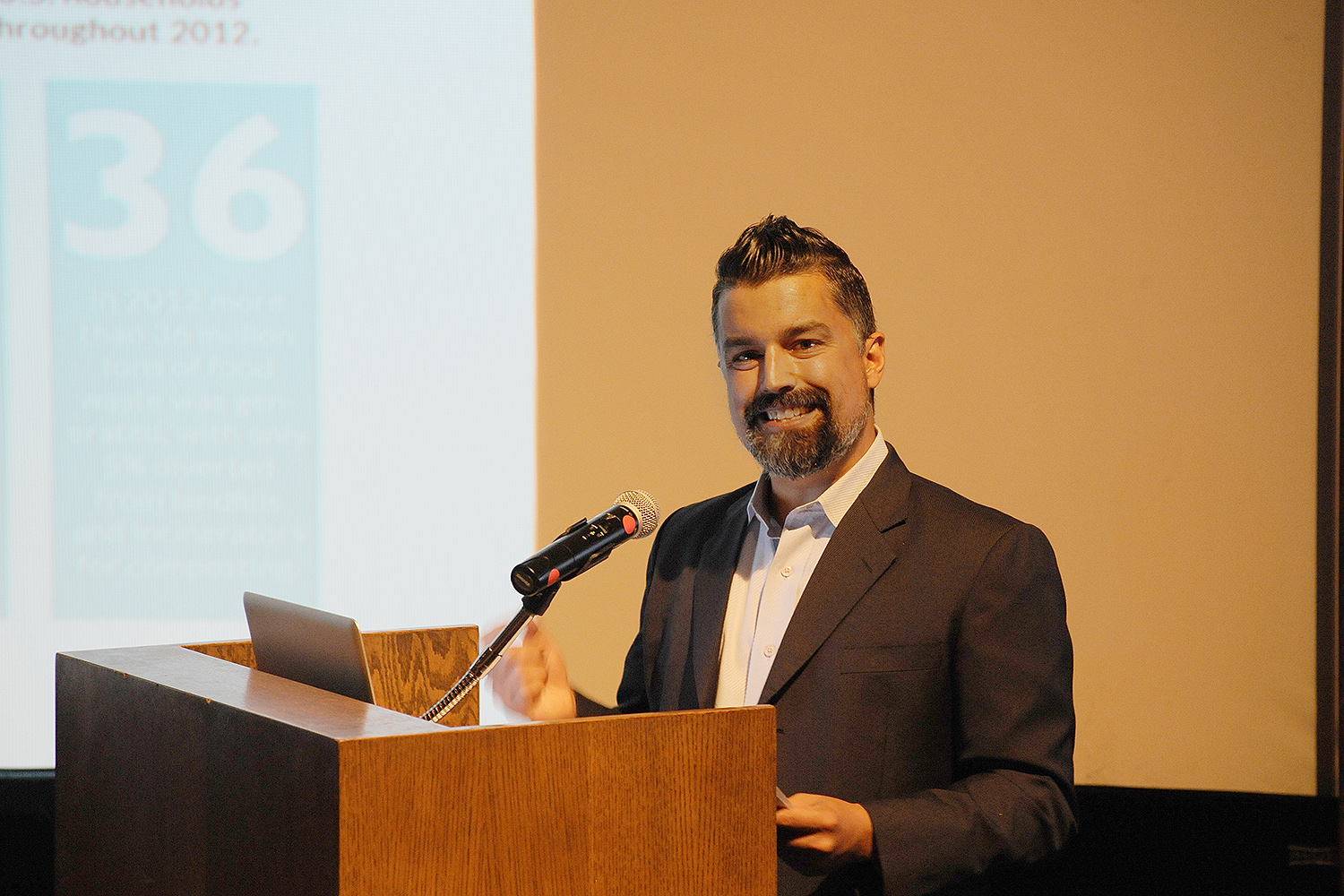Appadurai ’00 Speaks on Food Justice and Sustainability at 2017 Americas Forum


Alok Appadurai ’00, co-founder of Fed by Threads, the first sustainable, sweatshop-free, multi-brand, American-made organic vegan clothing store in the United States that has used a portion of its profits to feed over half a million meals to Americans in need, offered the keynote speech on “Food Justice and Sustainability” at the 2017 Americas Forum, held at the Ring Family Performing Arts Hall on April 28. He has recently founded GoodElephant.org, designed to create a global “herd” that will work on changing the world by nurturing compassion and empathy to promote social and environmental reform—and his book, Good Elephant, will be published later this year. Appadurai’s post-Wesleyan career highlights the interests he explored at Wesleyan, where he built his own concentration in American Studies that incorporated colonialism, workers’ rights, utopian communities, the environment, and gender/class issues.
Appadurai’s talk “The Compassion Famine: Exploring The Unspoken Solutions To Hunger In America,” offered solutions to end what he calls “the compassion famine” and bring about food justice. The process begins, he says, with each person imagining a world without hunger. “While a world without hunger seems remote, we first need to each hold the idea as a possibility, before we could make this come true,” he says. He also asked his audience to “change what we imagine the face of hunger to look like.” Not just a problem for the developing nations, food insecurity is a problem that forty million people in the United States face. Yet—”We also throw out nearly 40 percent of our food—which goes to landfills and causes greenhouse gasses,” he adds.
He suggests that his audience take several steps, including individual involvement in community food banks. He adds, “People want access to quality jobs, so they have the means to provide food for their family,” linking the problem of hunger to the economics of how and where one shops. “If people put 10 percent of their purchasing power into local communities, we will be raising the quality of the schools and local economies,” he says.
He notes that while we already have enough U.S.-grown food to meet the caloric needs in our country, we feed 66 percent of this food to farm animals. From that, only 12 percent of the calories are converted into food for humans. He suggests we began to have “a conversation with a chicken.” His own such conversation began in Jordan, post-college, when he asked a butcher to teach him his craft. Turning a chicken into food, he says, “gave me a profoundly different connection to my food supply.”
“Build a relationship with a chicken,” he says. “Start going to farms. Connect deeply with your food supply. The choices we make around food are an act of resistance and an act of justice.”
After Appadurai’s keynote, three scholars presented talks addressing key issues. Elizabeth Hoover, of Brown University, presented her talk “From ‘Garden Warriors’ to ‘Good Seeds’; Defining and Enacting Food Sovereignty Through American Indian Community Gardening Projects”; Brin Donahue, of Brandeis University, spoke on “Woodlands, Farmlands, and Communities: Visions for New England’s Future”; and Wesleyan Associate Professor of History Courtney Fullilove, spoke on “Seed Saving in Economies of Scale: Some Questions about Sovereignty and International Governance.”

